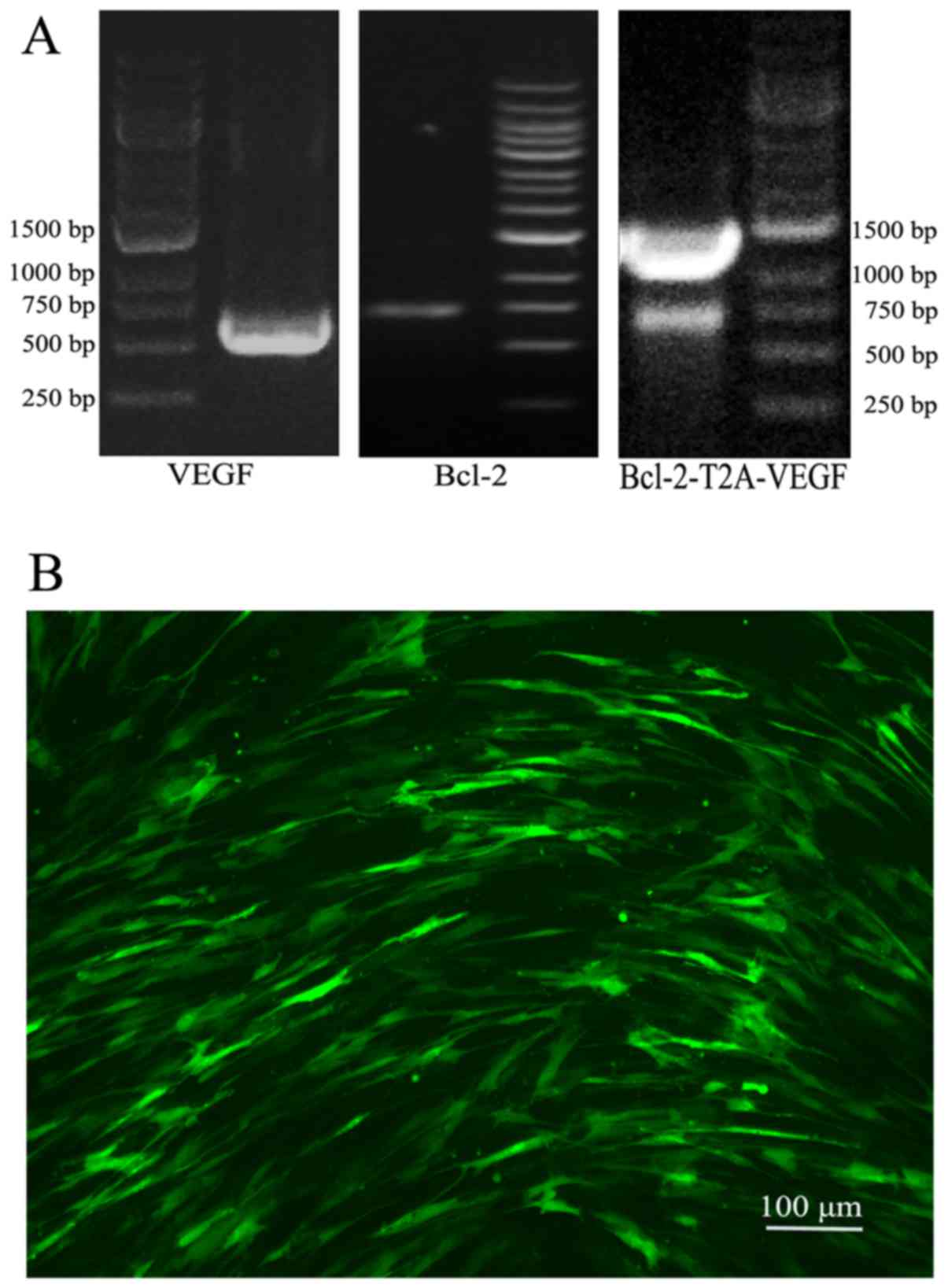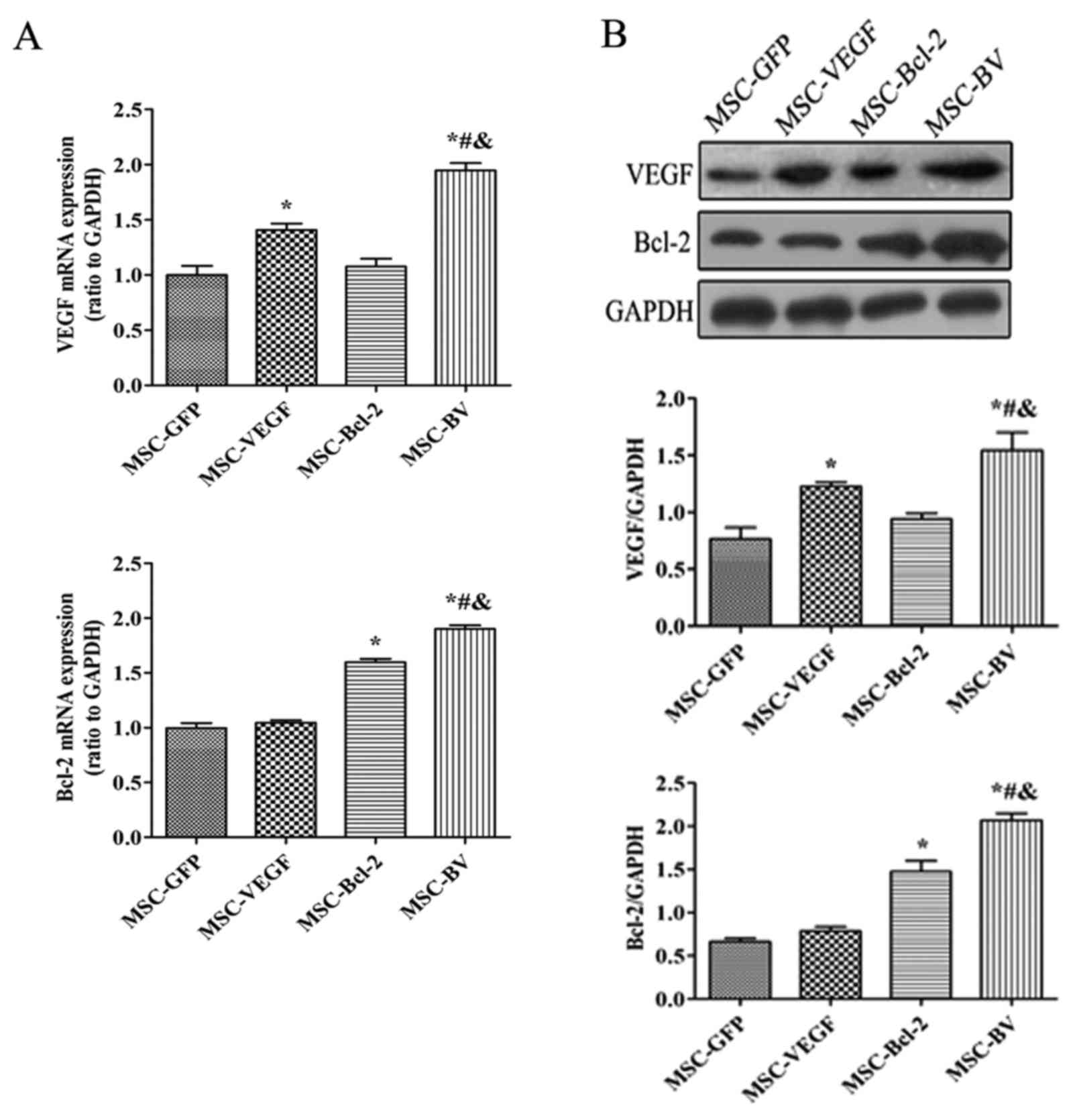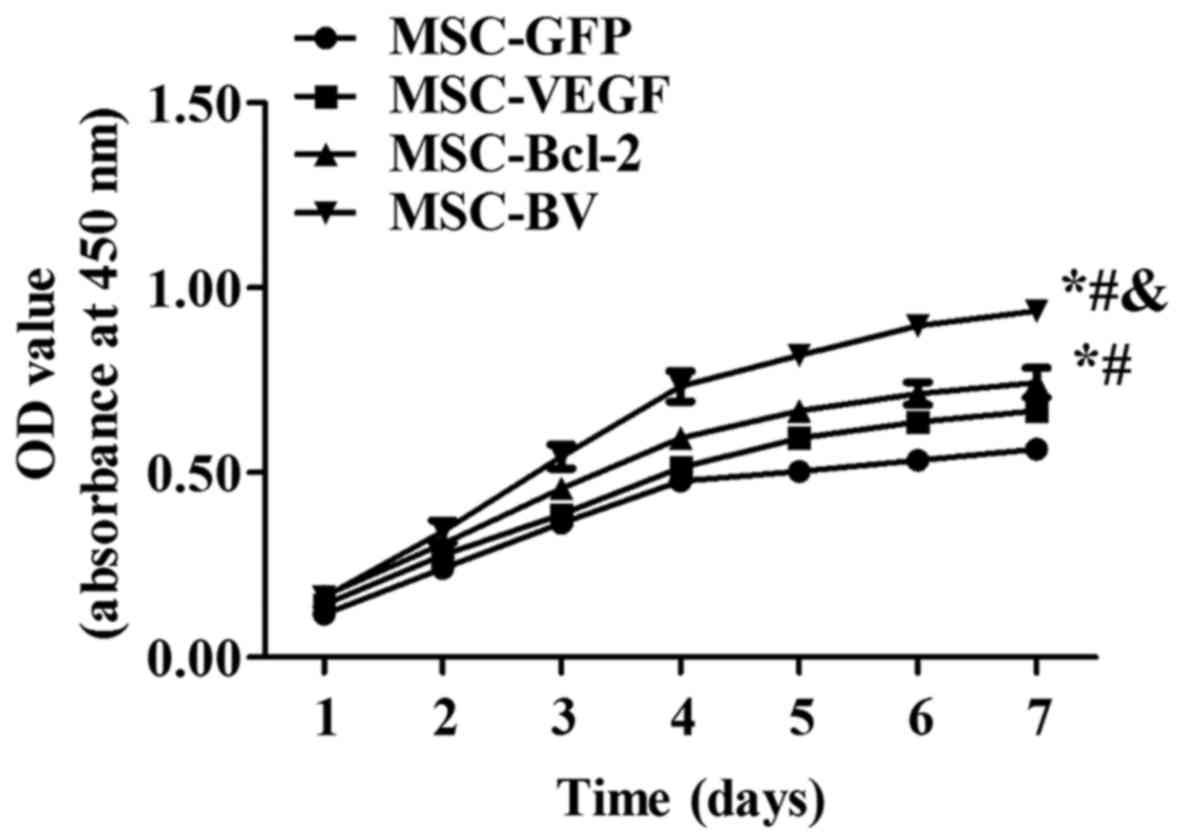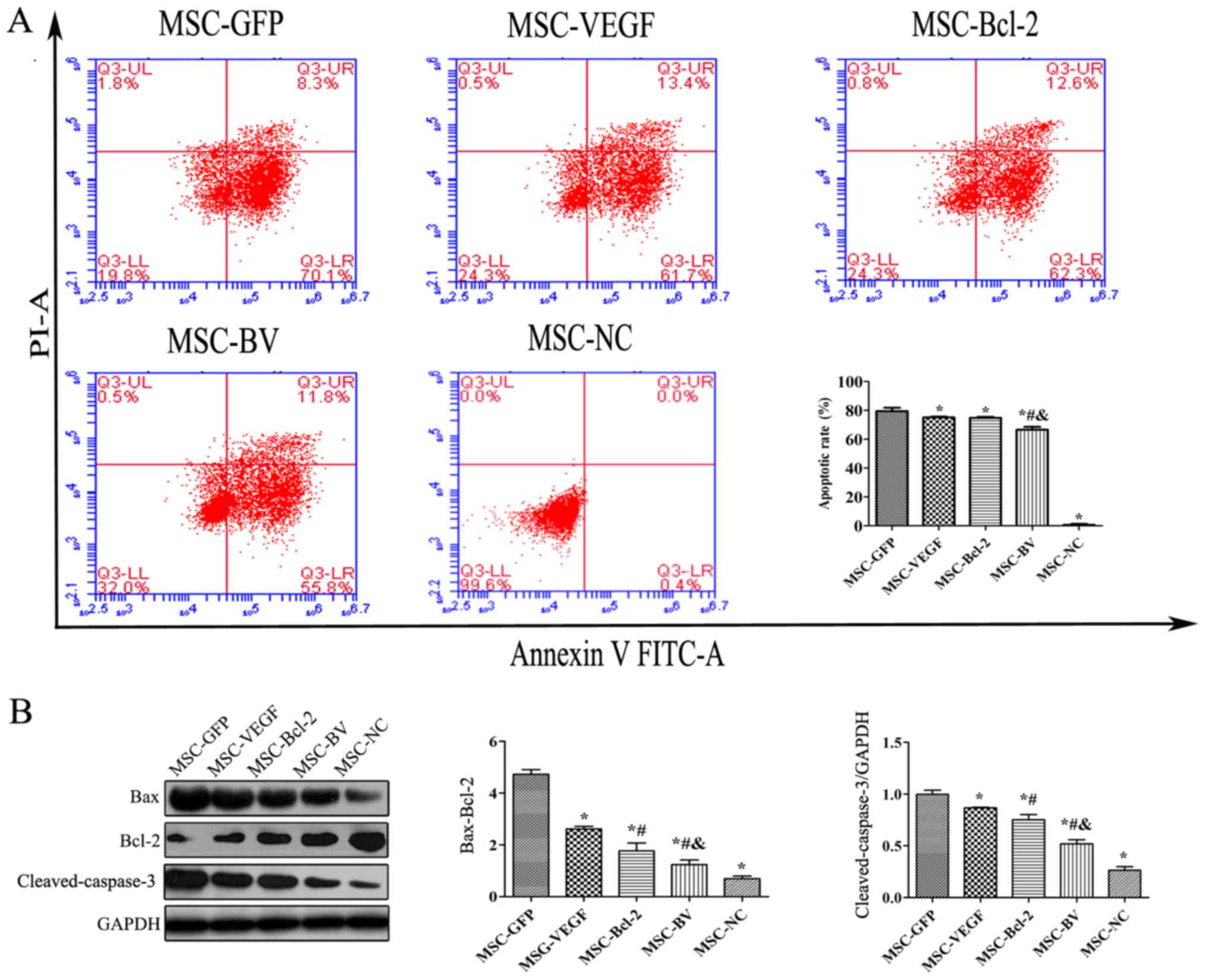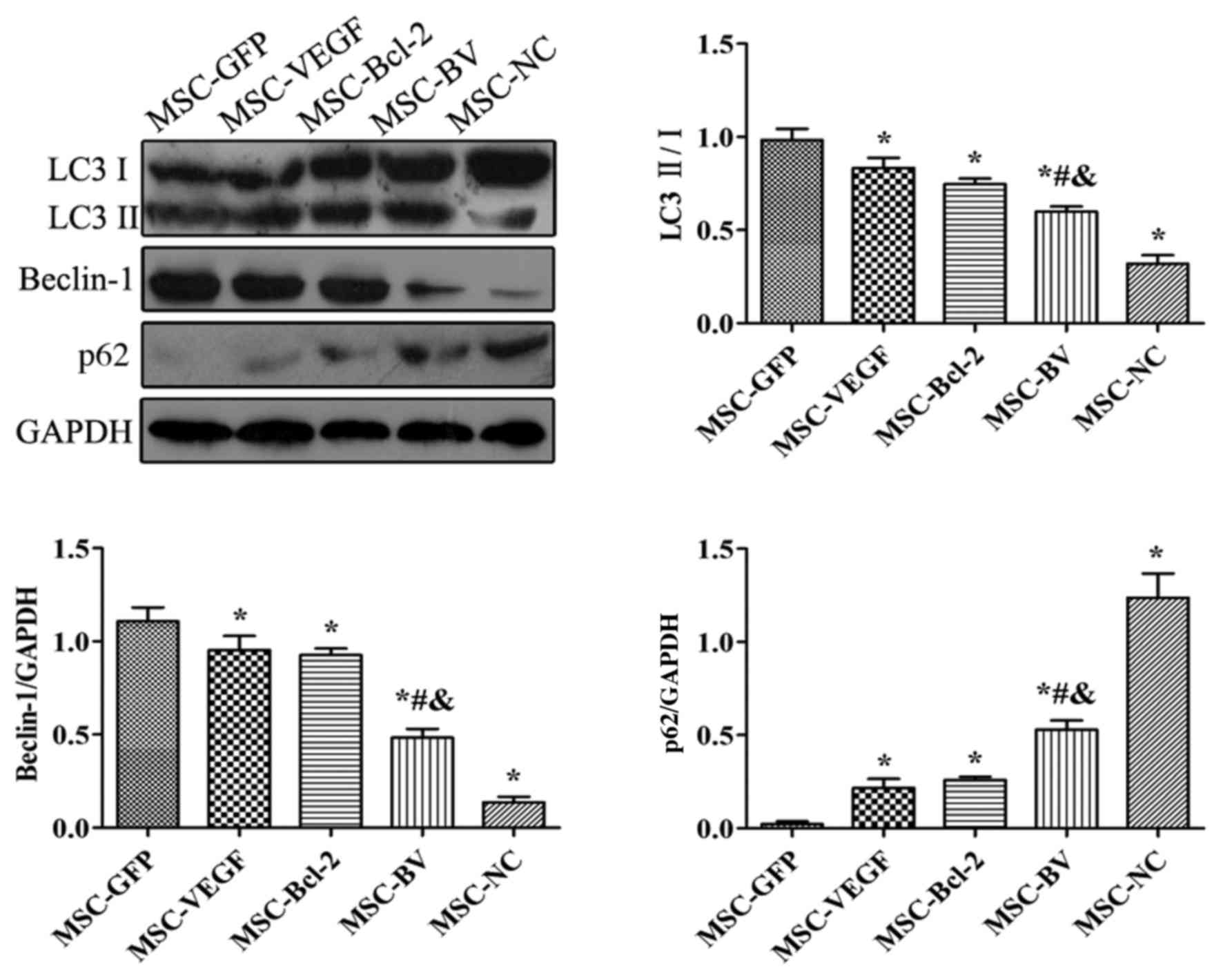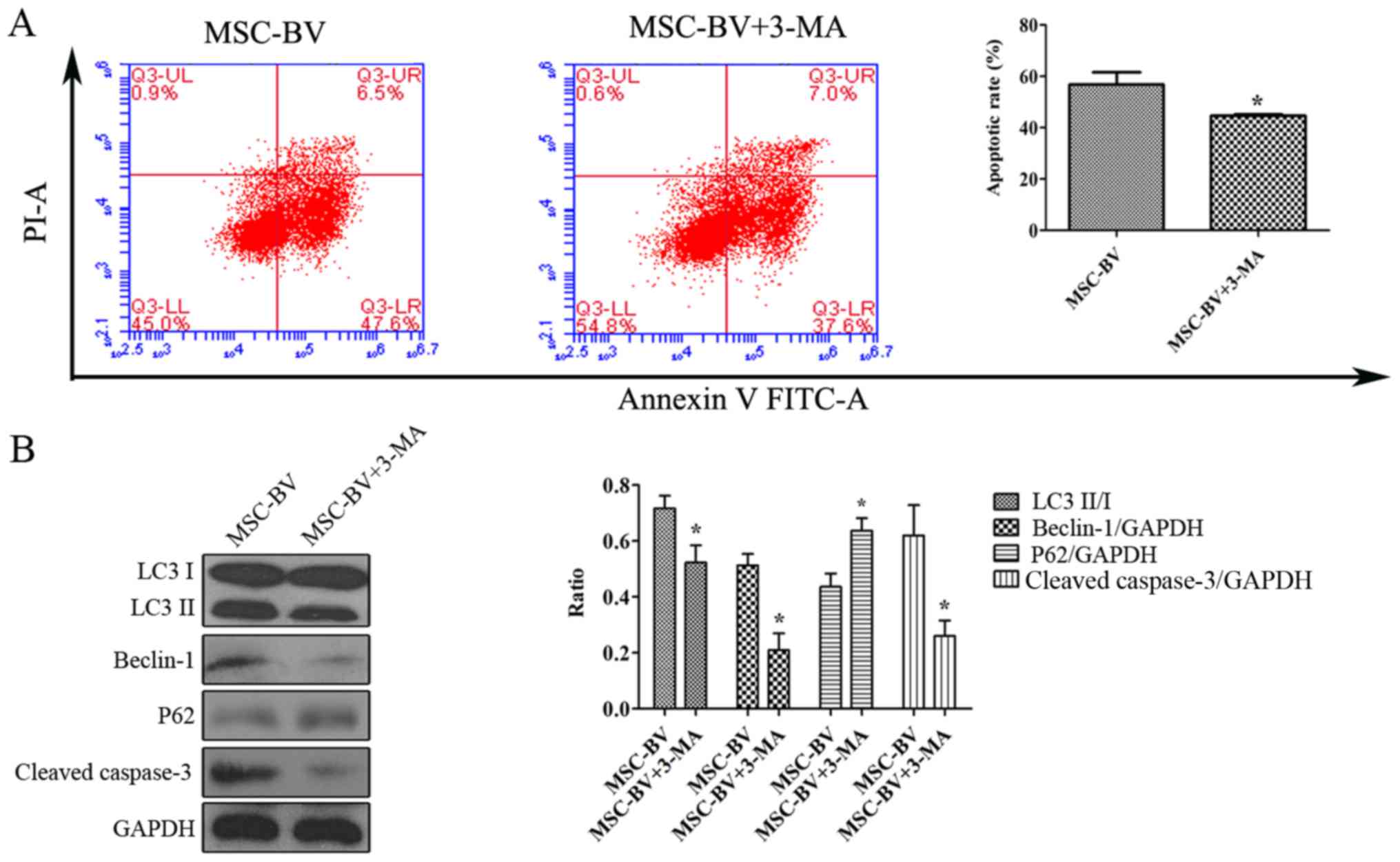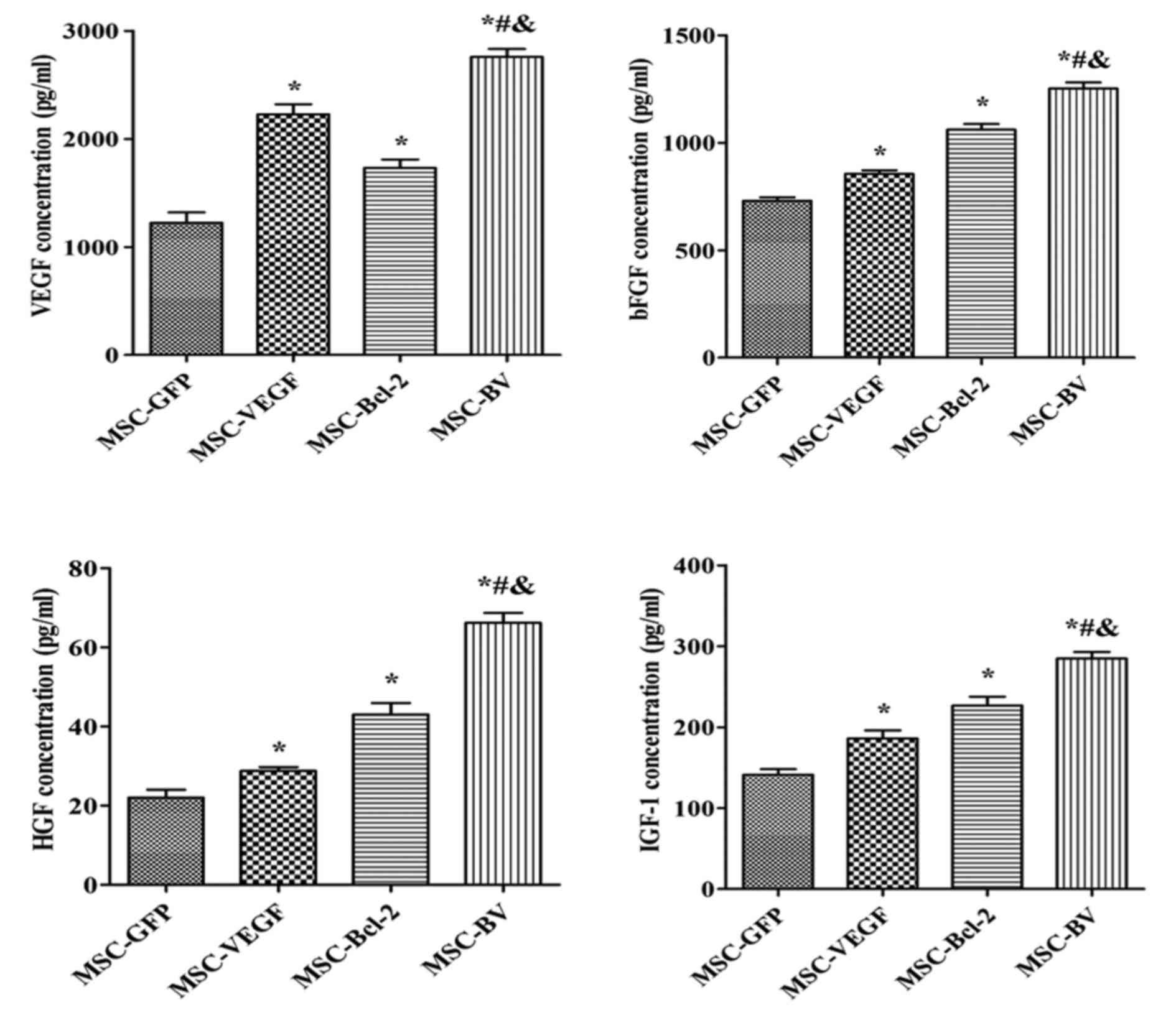|
1
|
Wang X, Zhang J, Zhang F, Li J, Li Y, Tan
Z, Hu J, Qi Y, Li Q and Yan B: The clinical status of stem cell
therapy for ischemic cardiomyopathy. Stem Cells Int.
2015:1350232015. View Article : Google Scholar : PubMed/NCBI
|
|
2
|
Wang XJ and Li QP: The roles of
mesenchymal stem cells (MSCs) therapy in ischemic heart diseases.
Biochem Biophys Res Commun. 359:189–193. 2007. View Article : Google Scholar : PubMed/NCBI
|
|
3
|
Duran JM, Makarewich CA, Sharp TE,
Starosta T, Zhu F, Hoffman NE, Chiba Y, Madesh M, Berretta RM, Kubo
H, et al: Bone-derived stem cells repair the heart after myocardial
infarction through transdifferentiation and paracrine signaling
mechanisms. Circ Res. 113:539–552. 2013. View Article : Google Scholar : PubMed/NCBI
|
|
4
|
Young PP and Schäfer R: Cell-based
therapies for cardiac disease: A cellular therapist's perspective.
Transfusion. 55:441–451; quiz 440. 2015. View Article : Google Scholar
|
|
5
|
Lee S, Choi E, Cha MJ and Hwang KC: Cell
adhesion and long-term survival of transplanted mesenchymal stem
cells: A prerequisite for cell therapy. Oxid Med Cell Longev.
2015:6329022015. View Article : Google Scholar : PubMed/NCBI
|
|
6
|
Penn MS and Mangi AA: Genetic enhancement
of stem cell engraftment, survival, and efficacy. Circ Res.
102:1471–1482. 2008. View Article : Google Scholar : PubMed/NCBI
|
|
7
|
Matsumoto R, Omura T, Yoshiyama M, Hayashi
T, Inamoto S, Koh KR, Ohta K, Izumi Y, Nakamura Y, Akioka K, et al:
Vascular endothelial growth factor-expressing mesenchymal stem cell
transplantation for the treatment of acute myocardial infarction.
Arterioscler Thromb Vasc Biol. 25:1168–1173. 2005. View Article : Google Scholar : PubMed/NCBI
|
|
8
|
Li W, Ma N, Ong LL, Nesselmann C, Klopsch
C, Ladilov Y, Furlani D, Piechaczek C, Moebius JM, Lützow K, et al:
Bcl-2 engineered MSCs inhibited apoptosis and improved heart
function. Stem Cells. 25:2118–2127. 2007. View Article : Google Scholar : PubMed/NCBI
|
|
9
|
Baek JH, Jang JE, Kang CM, Chung HY, Kim
ND and Kim KW: Hypoxia-induced VEGF enhances tumor survivability
via suppression of serum deprivation-induced apoptosis. Oncogene.
19:4621–4631. 2000. View Article : Google Scholar : PubMed/NCBI
|
|
10
|
Wang D, Weng Q, Zhang L, He Q and Yang B:
VEGF and Bcl-2 interact via MAPKs signaling pathway in the response
to hypoxia in neuroblastoma. Cell Mol Neurobiol. 29:391–401. 2009.
View Article : Google Scholar
|
|
11
|
Shearer RF and Saunders DN: Experimental
design for stable genetic manipulation in mammalian cell lines:
Lentivirus and alternatives. Genes Cells. 20:1–10. 2015. View Article : Google Scholar
|
|
12
|
Sakuma T, Barry MA and Ikeda Y: Lentiviral
vectors: Basic to translational. Biochem J. 443:603–618. 2012.
View Article : Google Scholar : PubMed/NCBI
|
|
13
|
Ibrahimi A, Vande Velde G, Reumers V,
Toelen J, Thiry I, Vandeputte C, Vets S, Deroose C, Bormans G,
Baekelandt V, et al: Highly efficient multicistronic lentiviral
vectors with peptide 2A sequences. Hum Gene Ther. 20:845–860. 2009.
View Article : Google Scholar : PubMed/NCBI
|
|
14
|
McGinley LM, McMahon J, Stocca A, Duffy A,
Flynn A, O'Toole D and O'Brien T: Mesenchymal stem cell survival in
the infarcted heart is enhanced by lentivirus vector-mediated heat
shock protein 27 expression. Hum Gene Ther. 24:840–851. 2013.
View Article : Google Scholar : PubMed/NCBI
|
|
15
|
Wang X, Zhao T, Huang W, Wang T, Qian J,
Xu M, Kranias EG, Wang Y and Fan GC: Hsp20-engineered mesenchymal
stem cells are resistant to oxidative stress via enhanced
activation of Akt and increased secretion of growth factors. Stem
Cells. 27:3021–3031. 2009.PubMed/NCBI
|
|
16
|
Mangi AA, Noiseux N, Kong D, He H, Rezvani
M, Ingwall JS and Dzau VJ: Mesenchymal stem cells modified with Akt
prevent remodeling and restore performance of infarcted hearts. Nat
Med. 9:1195–1201. 2003. View
Article : Google Scholar : PubMed/NCBI
|
|
17
|
Fan L, Lin C, Zhuo S, Chen L, Liu N, Luo
Y, Fang J, Huang Z, Lin Y and Chen J: Transplantation with
survivin-engineered mesenchymal stem cells results in better
prognosis in a rat model of myocardial infarction. Eur J Heart
Fail. 11:1023–1030. 2009. View Article : Google Scholar : PubMed/NCBI
|
|
18
|
Tang YL, Zhao Q, Qin X, Shen L, Cheng L,
Ge J and Phillips MI: Paracrine action enhances the effects of
autologous mesenchymal stem cell transplantation on vascular
regeneration in rat model of myocardial infarction. Ann Thorac
Surg. 80:229–237. 2005. View Article : Google Scholar : PubMed/NCBI
|
|
19
|
Banai S, Jaklitsch MT, Shou M, Lazarous
DF, Scheinowitz M, Biro S, Epstein SE and Unger EF:
Angiogenic-induced enhancement of collateral blood flow to ischemic
myocardium by vascular endothelial growth factor in dogs.
Circulation. 89:2183–2189. 1994. View Article : Google Scholar : PubMed/NCBI
|
|
20
|
Deuse T, Peter C, Fedak PW, Doyle T,
Reichenspurner H, Zimmermann WH, Eschenhagen T, Stein W, Wu JC,
Robbins RC, et al: Hepatocyte growth factor or vascular endothelial
growth factor gene transfer maximizes mesenchymal stem cell-based
myocardial salvage after acute myocardial infarction. Circulation.
120(Suppl 11): S247–S254. 2009. View Article : Google Scholar : PubMed/NCBI
|
|
21
|
Locatelli P, Olea FD, Hnatiuk A, De
Lorenzi A, Cerdá M, Giménez CS, Sepúlveda D, Laguens R and
Crottogini A: Mesenchymal stromal cells overexpressing vascular
endothelial growth factor in ovine myocardial infarction. Gene
Ther. 22:449–457. 2015. View Article : Google Scholar : PubMed/NCBI
|
|
22
|
Jiang S, Haider HK, Idris NM, Salim A and
Ashraf M: Supportive interaction between cell survival signaling
and angiocompetent factors enhances donor cell survival and
promotes angiomyo-genesis for cardiac repair. Circ Res. 99:776–784.
2006. View Article : Google Scholar : PubMed/NCBI
|
|
23
|
McMahon JM, Conroy S, Lyons M, Greiser U,
O'shea C, Strappe P, Howard L, Murphy M, Barry F and O'Brien T:
Gene transfer into rat mesenchymal stem cells: A comparative study
of viral and nonviral vectors. Stem Cells Dev. 15:87–96. 2006.
View Article : Google Scholar : PubMed/NCBI
|
|
24
|
Lindqvist LM and Vaux DL: BCL2 and related
prosurvival proteins require BAK1 and BAX to affect autophagy.
Autophagy. 10:1474–1475. 2014. View Article : Google Scholar : PubMed/NCBI
|
|
25
|
Boya P, González-Polo RA, Casares N,
Perfettini JL, Dessen P, Larochette N, Métivier D, Meley D,
Souquere S, Yoshimori T, et al: Inhibition of macroautophagy
triggers apoptosis. Mol Cell Biol. 25:1025–1040. 2005. View Article : Google Scholar : PubMed/NCBI
|
|
26
|
Denton D, Xu T and Kumar S: Autophagy as a
pro-death pathway. Immunol Cell Biol. 93:35–42. 2015. View Article : Google Scholar
|
|
27
|
Fitzwalter BE and Thorburn A: Recent
insights into cell death and autophagy. FEBS J. 282:4279–4288.
2015. View Article : Google Scholar : PubMed/NCBI
|
|
28
|
Haider HK, Jiang S, Idris NM and Ashraf M:
IGF-1-overexpressing mesenchymal stem cells accelerate bone marrow
stem cell mobilization via paracrine activation of SDF-1alpha/CXCR4
signaling to promote myocardial repair. Circ Res. 103:1300–1308.
2008. View Article : Google Scholar : PubMed/NCBI
|
|
29
|
Fiedler J, Brill C, Blum WF and Brenner
RE: IGF-I and IGF-II stimulate directed cell migration of
bone-marrow-derived human mesenchymal progenitor cells. Biochem
Biophys Res Commun. 345:1177–1183. 2006. View Article : Google Scholar : PubMed/NCBI
|
|
30
|
Song H, Song BW, Cha MJ, Choi IG and Hwang
KC: Modification of mesenchymal stem cells for cardiac
regeneration. Expert Opin Biol Ther. 10:309–319. 2010. View Article : Google Scholar : PubMed/NCBI
|















